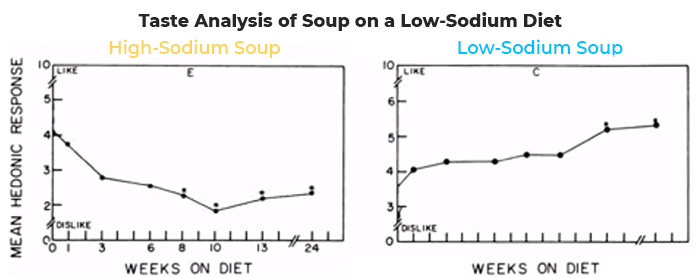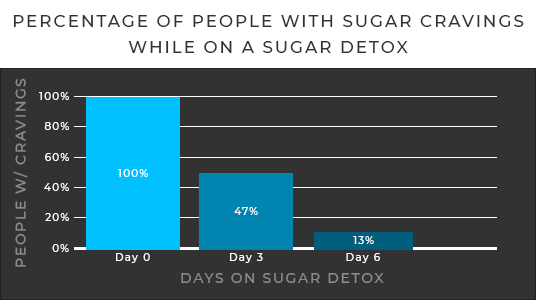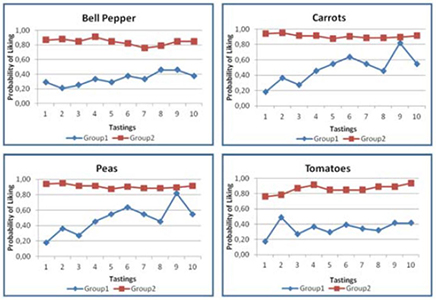If I asked the average person to try my daily oatmeal bowl, salad dish, cup of soup or even my black bean brownie, most of them wouldn’t immediately fall in love with it. They’d much rather stick to their processed cereals, oil dressed salads, heavily salted soups and sugar laced brownies. And when I say, “much rather,” I mean they’d cling to their current favorite foods as if their life would be over without them. Honestly, it’s a little disturbing once you understand the science behind it. But for those who’ve adopted a whole foods plant-based diet, these same healthy meals that processed food lovers dislike, are thoroughly enjoyable. So, why is it that healthy people enjoy healthy foods more than the average American? Why is it that so many people seem to be nearly addicted to these highly processed foods? And how can you not only like healthy food, but make healthy food taste better? Even vegetables… Let’s get into it!
The Holy Trinity
When it comes to restaurant, packaged, factory, or frozen food, it’s highly tasty and desirable. And the reason for this is there’s almost always a team of food scientists in the background that are manipulating the combinations of added ingredients like salt, oil, and sugar to produce the best tasting food. And as you consume more of these added ingredients, your taste buds will slowly desensitize, and you’ll need more of these ingredients to achieve that same enjoyment. It’s why the average American is consuming more salt, oil, and sugar today than any other decade. So, let’s break it down.
Salt
Salt is added to food for several reasons including heightening flavor, reducing bitterness, and enhancing sweetness. And as you consume more salt, you prefer saltier and saltier foods. Your taste buds become accustomed to it. But the good thing is this can be reversed. By doing the opposite and consuming less salt, you can regain your taste bud sensitivity and prefer less salty food. In one study, they had a group of people go on a low-sodium diet for 24 weeks. During that time, they gauged the participants fondness for a high-sodium and a low-sodium soup. As their low-sodium diet progressed over the weeks, they liked the higher-sodium soup less and the lower-sodium soup more. And in the end, even preferring the low-sodium soup over the high-sodium soup. But this preference change can’t happen unless you start cutting out the existing added salt from your diet. (more on salt)

Oil
And not surprisingly, we see this same effect with added fats like oil too. Traditionally, it was assumed that we couldn’t taste fat in the same way we can taste sweet, sour, and salty but new research is challenging that. It’s been shown that people on low-fat diets start preferring lower-fat foods more and higher-fat foods less. As Dr. Michael Greger states:
“Our tongues appear to become more sensitive to fat if we eat less of it. And the more sensitive our tongues become, the less butter, meat, dairy, and eggs study subjects ate. We also get a blunted taste for fat if we eat too much. This diminished fat sensitivity has been linked to eating more calories; more fat; more dairy, meat, and eggs; and becoming fatter ourselves.“
To summarize, the more added oils we consume, the more we crave. And if we want to eliminate our craving and dependence on added oil foods, we need to eliminate the added oil from our diets. (more on oil)
Sugar
And lastly, and possibly the scariest, sugar. A study had twenty people go two weeks without added sugar in their diets. After 3 days without sugar, 53% of the participants said their sugar cravings went away. After six day, 87% said they cravings went away. And the idea is, the longer you go without added sugar the less your body craves. And if you want to know how severe sugar cravings are, just take a look at the conclusions of this other study I stumbled upon during my research:
“Conclusions: Our findings clearly demonstrate that intense sweetness can surpass cocaine reward, even in drug-sensitized and -addicted individuals.“
In summary, cocaine addicts who crave cocaine still find cocaine less rewarding than the intense sweetness of added sugar in foods. It’s a little scary how powerful sugar is and how prevalent it is in all the processed food available today. (more on sugar)

Salt, Oil, Sugar Conclusion
Each of these ingredients individually (salt, sugar, and oil) can desensitize our taste to prefer highly processed foods over whole foods. And when companies are combining all three ingredients in a single food and running taste tests to optimize their proportions and potency, it’s no wonder we don’t like the healthy foods. It’s no wonder we can’t imagine our lives without Frosted Flakes, Pizza, Whoppers, KFC Chicken, and Ice Cream. It’s no wonder we’ve lost the taste sensitivity to enjoy whole foods like apples, carrots, bananas, tomatoes, and cashews. And not only are we not giving ourselves a chance to like healthy food, but it’s hard for me to not think that most people’s attachment to their favorite processed foods are an addiction. But I’ll let you make your own judgement based upon the American Psychiatric Association’s definition of addiction.
“Substance use disorder (SUD) is a complex condition in which there is uncontrolled use of a substance despite harmful consequence. People with SUD have an intense focus on using a certain substance(s) such as alcohol, tobacco, or illicit drugs, to the point where the person’s ability to function in day-to-day life becomes impaired. People keep using the substance even when they know it is causing or will cause problems. The most severe SUDs are sometimes called addictions.” American Psychiatric Association
SOS Elimination Leads to Taste Change
Based on the information I just outlined, we know that eliminating processed foods with added salt, oil, and sugar will help us regain our taste bud sensitivity. That will then give us a better chance at liking healthy foods. But it doesn’t just mean you’ll immediately love carrots, bell peppers, tomatoes, and peas either. Our tongue palette constantly adapts based on the food we eat. And the more repeated exposure we have to a food, the greater chance we’ll like it. And a good example of this was demonstrated on elementary school children. They split the kids up into two groups: a group for kids who didn’t like a particular vegetable (group 1), and a group for kids who already liked a particular vegetable (group 2 – control group). They then asked the kids to taste the various vegetables that included bell peppers, carrots, peas, and tomatoes. They repeated these tastings over a period of ten times with the results shown below. In all four vegetable cases, the students increased their fondness for the food the more they ate it. And if this experiment were continued, it’s likely their fondness for the food would’ve kept increasing. So, if you want to like healthy foods, you’ll have to start eating them consistently even if you don’t like them at first. You’ll have to trust the process that your taste will change over weeks and months of exposure.

And the last part I’ll mention to help you like a food is to eat it while you’re hungry and follow it up with a slight reward. The hungrier you are, the greater your taste sensitivity is and greater chance you’ll enjoy a food. And here’s an example of how I’ve used this in my life. For lunch, I prepare a salad, a soup, and a piece of fruit. At first, I loved the fruit, liked the soup, and tolerated the salad. So, what I did was I’d eat the salad first when I was hungriest. I then followed that up with my soup that I already liked and finished with my fruit reward that I love. And after repeating this lunch process for over a year now, my enjoyment for the salad has increased immensely. And I don’t think I could’ve accomplished this if I ate the food in the opposite order because eating a food you don’t like while you’re full as the last thing you’re eating for a meal just doesn’t sound like a plan for success.
How to Add Flavor
Now that we understand more about why many people don’t like the taste of healthy food, and we understand how we can change our taste preferences, how can we make our healthy food taste even better? Well, here’s a brief list of ingredients you can add to meals that’ll provide that extra boost of flavor.
All of these options can increase the flavor profile of a dish and make healthy food taste even better.
Final Thoughts
It’s difficult to like healthy food if your taste buds are already desensitized from the excessive intake of processed foods with added salt, oil, and sugar. But a transition to a whole foods plant-based diet will reduce your reliance on these foods and bring back your taste sensitivity. Understand that this transition takes time and repeated exposure to healthy foods over weeks, months, and even years is necessary to thoroughly regain your full sensitivity and enjoyment of healthy foods. And you can help make this transition easier by eating the foods you don’t like while you’re hungriest and following it up with a rewarding healthy food you already enjoy. And don’t forget to throw in alliums, herbs, spices, fruit, and vinegar to your meals while you’re prepping and cooking. All or this will bring back your love and enjoyment for healthy foods in a way that may be hard to understand right now. But trust me, I’ve done it. I’ve seen it done my many others. And the science backs it up. So, start your transition to a healthier and happier diet today.
Looking for the top three things I’ve read, watched, and listened to this week? Check out my free health kit and weekly newsletter.
Watch a YouTube Video Summarizing the Post

Hey, I am Brandon Zerbe
Welcome to myHealthSciences! My goal has always been to increase quality-of-life with healthy habits that are sustainable, efficient, and effective. I do this by covering topics like Fitness, Nutrition, Sleep, Cognition, Finance and Minimalism. You can read more about me here.
Sources:
- Want to Be Healthier? Change Your Taste Buds
- Changing Our Taste Buds
- Add Flavor Not Salt
- Intense Sweetness Surpasses Cocaine Reward
- Does Consuming Sugar and Artificial Sweeteners Change Taste Preferences?
- Repeated Exposure and Conditioning Strategies for Increasing Vegetable Liking and Intake: Systematic Review and Meta-Analyses of the Published Literature
- Repeated Taste Exposure Increases Liking for Vegetables by Low-Income Elementary School Children
- Eat For Life
